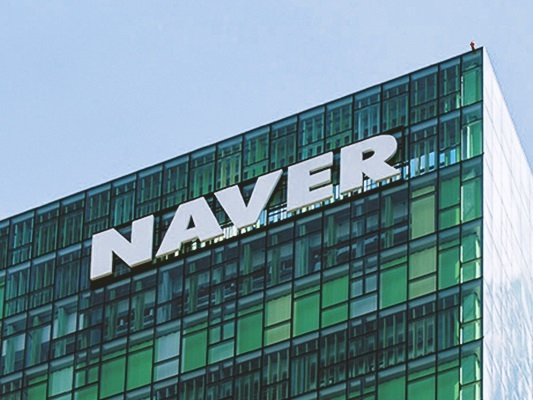Mobile & Internet
Big tech firms in S. Korea see profits slide in Q2
Faced with neck-and-neck competition and trade conflicts between global economic powers, South Korean IT giants saw their profits tumble in the April-July period.
Naver announced on July 25 that its operating profit came in at 128.3 billion won ($108 million), down 48.8 percent on-year while its revenue increased by 19.6 percent to 1.6 trillion won. The web portal giant, which owns Tokyo-based mobile messenger operator Line, said temporary marketing costs for mobile payment solution Line Pay dragged down its profits in the second quarter. The operating profit was below the average market estimate of 160 billion won.
 |
The company spent some 330 billion won for the marketing campaign of Line Pay, in response to the intensifying competition in the Japanese mobile payment market, the company explained.
Announcing plans to beef up the firm’s business models, Naver CEO Han Seong-sook said the internet giant will spin off a division for Naver Pay, a payment solution featured in its online apps.
“Naver will build an ecosystem that enables users to conveniently search and book restaurants and make a payment,” the CEO said in a conference call held after announcing the second-quarter earnings results in the morning.
The Naver Pay unit, tentatively named as Naver Financial, is scheduled to be launched as an independent company on Nov. 1. The financial business unit will likely offer a range of services, including loans and insurance.
Among the companies that experienced an earnings shock in the second quarter include SK hynix and LG Display.
SK hynix said on the same day in its earnings report that its second-quarter operating profit stood at 637.6 billion, down 89 percent from a year earlier. It earned 6.5 trillion won in revenue, down 38 percent on-year. The falling price of DRAM chips in the global market was the main reason for the disappointing results.
“Although the entire shipments for mobile and PC DRAM chips increased by 13 percent quarter over quarter, the average selling price of the chips dropped by 24 percent due to the declining DRAM prices,” the company said in a statement.
The chipmaker, the second largest DRAM maker in the world after Samsung Electronics, has faced a series of daunting challenges. The trade row between China and the US has put pressure on its operations with Chinese customers, including Huawei Technologies, while the trade feud between Korea and Japan has made it difficult to work with Japanese suppliers for chip materials.
The Japanese government has removed Korea from its whitelist, which grants countries preferential benefits when trading goods. The removal of Korea from the list will likely affect the imports of chemical products essential for chip manufacturing processes from Japan.
“SK hynix will try to procure chemicals that will be affected by the Japanese restrictions while diversifying supply vendors and efficiently managing the inventory,” said CFO Cha Jin-seok.
Display maker LG Display also posted worse-than-expected earnings in the second quarter with its operating loss widening 61.6 percent on-year to 368.7 billion won. Its sales dropped 5 percent to 5.4 trillion won during the same period.
In the LCD sector, Chinese rivals, including BOE and CSOT, are outpacing the Korean display firm in terms of production capacity while LGD is an underdog in the fast-growing mobile OLED segment. Its crosstown rival Samsung Display dominates the smartphone OLED display market. LGD is forecast to supply its mobile OLED panels to Apple in the latter half this year, but the volume will likely be limited.
Market analysts forecast that the Korean IT behemoths might see a turnaround, but they still face risks and uncertainties.
“There is no strong signal on the increase of memory chip demand, and the trade dispute with Japan is unpredictable,” said Lee Seung-woo, an analyst from Eugene Investment & Securities.
By Kim Young-won (wone0102@heraldcorp.com)








